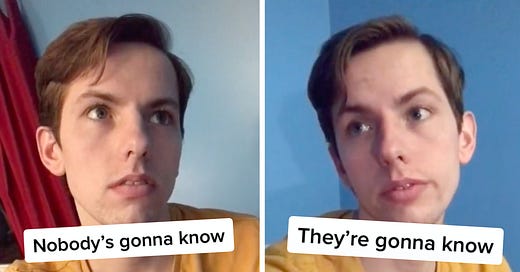Originality is hard.
Even more so, it seems, in Silicon Valley.
You know what I’m talking about.
Assume you are running a very fast moving tech company which will soon launch new voice-enabled applications. This means you get to cast voices! This is the most fun a tech executive can have, even better than themed baby showers or board room politics.
All of a sudden, you’re operating in the realm of culture and not the guts of technology. Of course you’re going to want to hire your favorite movie actress from that movie you adore. And of course you’re going to assume this is easy and the actress will absolutely want to play ball.
And when it turns out you’re not as great a negotiator as you imagined, oh well, you pursue your dream anyway and hire a knockoff.
It was an unoriginal idea in the first place
“I got it! Let’s copy part of a movie concept from ten years ago.”
Scarlett Johansson is clearly talented, with an interesting voice. Her affiliation with a prescient film adds some PR intrigue.
But at its core, casting her from Her is sort of like releasing an action figure a decade after the movie played theaters. It’s nostalgic, but not memorable.
Worse, OpenAI bungled culture.
I’m sure Sam Altman is really smart and wildly capable. Apparently just not at talent negotiations. Or the concept of casting and originality. Coming on the heels of Apple’s “Crush” ad (which I liked) we’re left with even more reinforcement tech leaders are culturally tone deaf. Or as Casey Newton put it, “Given the huge challenges the AI companies themselves have told us to expect as their work continues, the fact that OpenAI bungled such a relatively small issue does not inspire much confidence.”
Casting is weird. Using celebrity voices as the UX-layer for technology is old news and overrun—i.e. Kevin Hart, Cookie Monster or Arnold Schwarzenegger (among many others) for Waze.
This was an opportunity to surprise us with a fresh approach.
I don’t mind Breeze, Cove, Juniper, Ember or Sky (the voices available inside ChatGPT). They’re legible. But they all follow a type of “trying slightly too hard” personality. Adding ScarJo to that mix wouldn’t have differentiated ChatGPT or set its brand apart.
AI+Creativity Update:
✏️ Michael Feldstein writes, “We can’t just sit by and let AI happen to us and our students. Nor can we let technologists and corporations become the primary drivers of the direction we take.” His piece on the evolution of AI tutors, Toward a Sector-Wide AI Tutor R&D Program, is worth your time.
👍🏽 Adobe continues to make AI generative image editing even easier. Now Lightroom includes Firefly’s “remove” capabilities across all platforms.
📢 Microsoft announced evolving features under its Copilot banner. For my money, their ability to enable “agents” (i.e. If This Then That scenarios) will spark the most increase in productivity.
👨🏾💻 OpenAI, when not fumbling creativity, is enabling greater fluency with data analysis. Okay, maybe that’s also very creative. Last week they rolled out enhancements to ChatGPT which enable non-analysts like myself to more easily speak spreadsheet. You can, “ask ChatGPT to combine spreadsheets of monthly expenses and create a pivot table categorized by expense type.”
🛑 The Age of AI is equally the Age of IP Lawyers. Sony Music Group released its “Declaration of AI Training Opt Out”—in short, train your AI on Sony’s artist’s work and they’ll sue.
🙋🏽 Seth Godin distills the responsibility of being curious: “It was better, apparently, to feel right than to know what was actually happening.”




